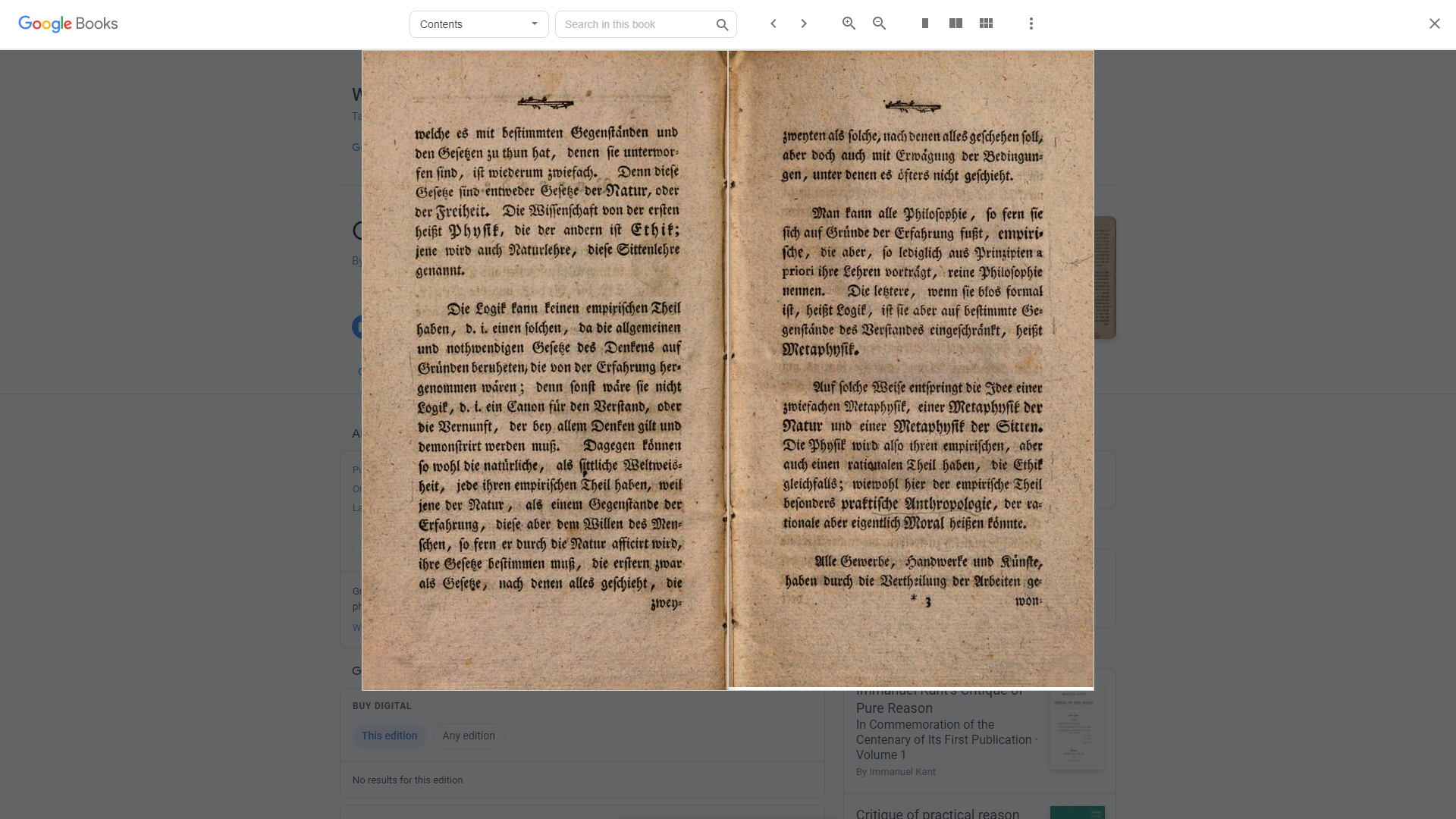Philosophy is an ancient concept dating back to the 5th century BC, when personalities like Socrates, Aristotle, and Plato laid their building blocks. Since then, the fundamentals of philosophy have evolved significantly. However, it wasn’t until 1785 when Immanuel Kant established the modern concepts of philosophy in his book Groundwork of the Metaphysic of Morals.
Initially written in German, Groundwork of the Metaphysic of Morals remains one of the most influential works in ethics and moral philosophy. You could read the book if you want; however, it’s a long book. If you’re not fond of reading that much, here’s a summary of the key takeaways from the book.
The Premise of Groundwork of the Metaphysic of Morals
Table of Contents
Before delving into the details, let’s briefly discuss what the book is all about. Nowadays, we know what’s right and wrong. There’s an abundance of resources – TV, print, radio, and the internet – that teach us right and wrong. However, a couple of centuries back, no such resources existed, and there was a dilemma about right and immoral conduct.

Groundwork of the Metaphysic of Morals lays the fundamental principle of morality that applies to humans. It covers moral sense theories, teleological ethical theories, and other tenets of moral duties and qualities.
Notably, the book introduces a general formula of moral law. Earlier, people would define moral law based on their specific interests and circumstances. Immanuel established a general formula that applied to all situations.
Now, why should you care about this book and its teachings? For starters, it discusses some principles that seem obvious but not many people know about. Also, it’s an interesting book that gives insights into how people looked at philosophy and morality two centuries ago
Key Takeaways from Groundwork of the Metaphysic of Morals
Now that we’ve discussed what the book is all about and why you should bother about it, let’s delve into its essential teachings. Immanuel divides the book into three sections. The first section discusses goodwill, the teleological argument, and propositions regarding duty. The second section talks about imperatives, the laws of nature, and the formula of humanity. The final section is about freedom and willingness.
That said, let’s delve deep into what Immanuel noted in each section.
Section 1: Good Will, Teleological Argument, and Duty
Kant explains that actions can be considered as goodwill only if they derive their goodness from something else. For instance, if you earn a lot of money and use it for human welfare, it’s goodwill. But if you gain it through corruption and by snatching other people’s rights, it’s disastrous.
This brings us to the teleological argument, which states that people must reason their actions to produce goodwill instead of inclining with their interests. This concept received some heat and redundancy from people. In response, Kant stated that the will guided by inclination is a result of duty. He gave three propositions regarding duty, including:
- People should act out of common-sense observation.
- People’s actions have moral worth only out of respect for the law.
- Final proposition: The actions should be inspired by a combination of common-sense observation and respect for the law. Kant named this concept Categorical Imperative.
Section 2: Imperatives and Laws of Nature
The second section of Groundwork of the Metaphysic of Morals talks about imperatives and the laws of nature.

Kant defines imperatives to be hypothetical or categorical. Hypothetical imperatives include the rules a person should follow if they achieve something based on inclination or desire. For instance, if you want to be fit, you should go to the gym and exercise. However, notice that this imperative applies to you only if you wish to get fit.
Categorical imperative, on the other hand, is driven by the universal laws of nature. Duty plays a large role in this area of metaphysics. Kant uses the concept of maxims (general principles) to guide decisions driven by moral and duty-bound decision-making. He refers to a categorical imperative as an act that aligns with universal law.
Hence, a person should decide to act based on objectivity, duty, and universal law to ensure morality.
Section 3: Freedom and Will
The final section argues that everyone has free will, making them morally self-legislating. Freedom means that people must abide by the moral law. Kant presents two ways people can view and consider themselves.
- People should view themselves as members of the world of appearances and follow the laws of nature.
- They should consider themselves as members of the intellectual world who have free will and can act freely.
Kant introduced the concept of freedom in this section and what it really means. In the 18th and 19th centuries, several nations were adopting democracy, allowing people to be free. However, it was essential to rightly define the meaning of freedom.
The book defines freedom as free will that isn’t impacted by external forces. Furthermore, it states that external forces don’t provide laws for free will. Free will operates under a combination of moral rules.
Another exciting concept Kant discussed in the book is God’s-eye and human perspective. Also known as the Archimedean point, the god’s perspective is a hypothetical viewpoint from where objective truths can be perfectly perceived. On the other hand, human perspectives are viewpoints of individual humans, and they can vary significantly.
Let’s take an example of sport. Suppose a team commits a foul in a hockey game, but the referee oversees it. The team can voluntarily accept that they’re committed a foul and risk their victory. Or, they can leverage the referee’s mistake and win the match. The action that is right or wrong will vary from one human viewpoint to another.
Conclusion: Groundwork of the Metaphysic of Morals
In a nutshell, the book Groundwork of the Metaphysic of Morals highlights that people should act with free will but simultaneously abide by the moral and universal laws. It’s essential to find a perfect balance between imperatives to decide what’s right and wrong.
So, what do you think about the teachings of this book and how would you apply them?

